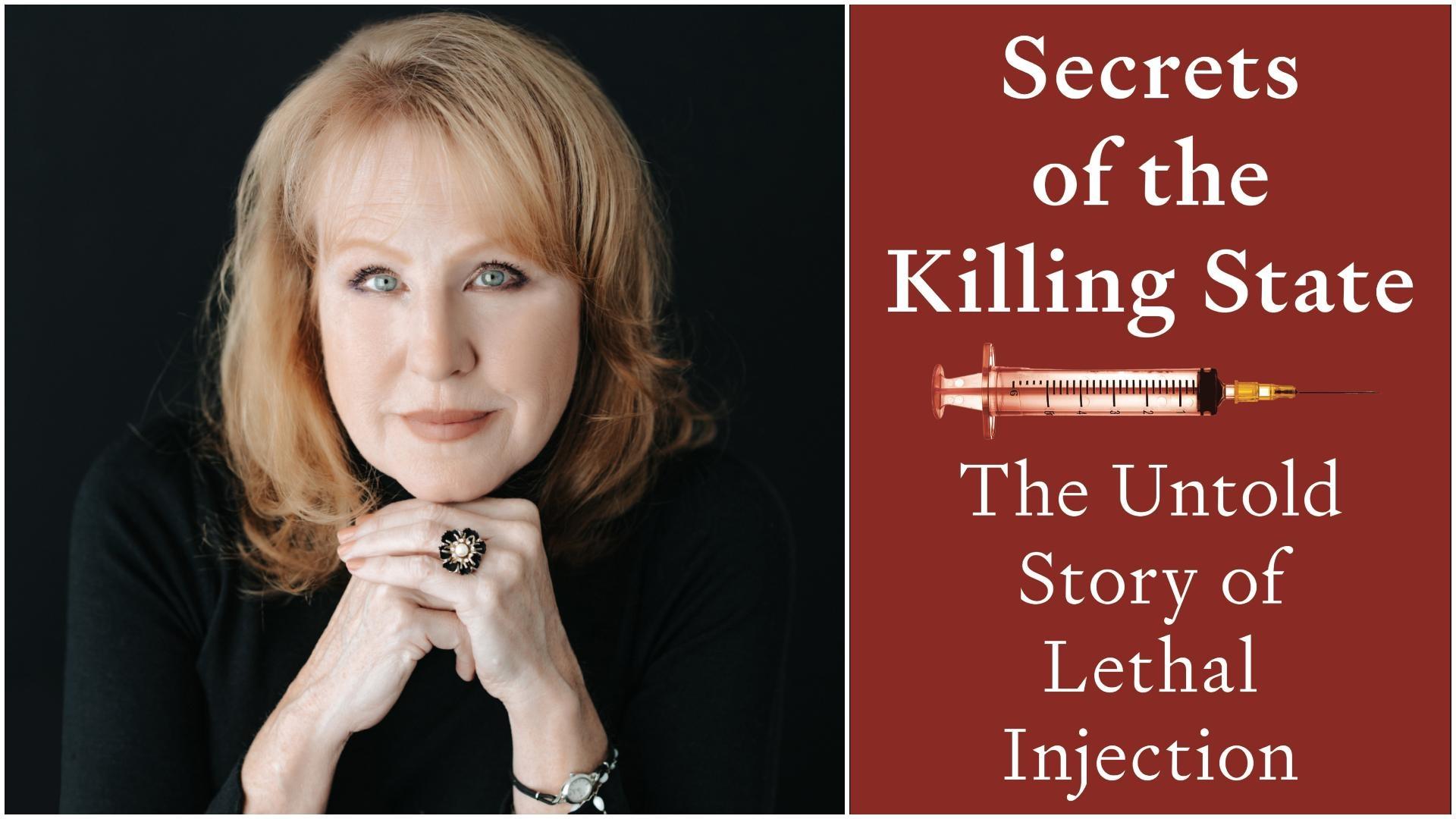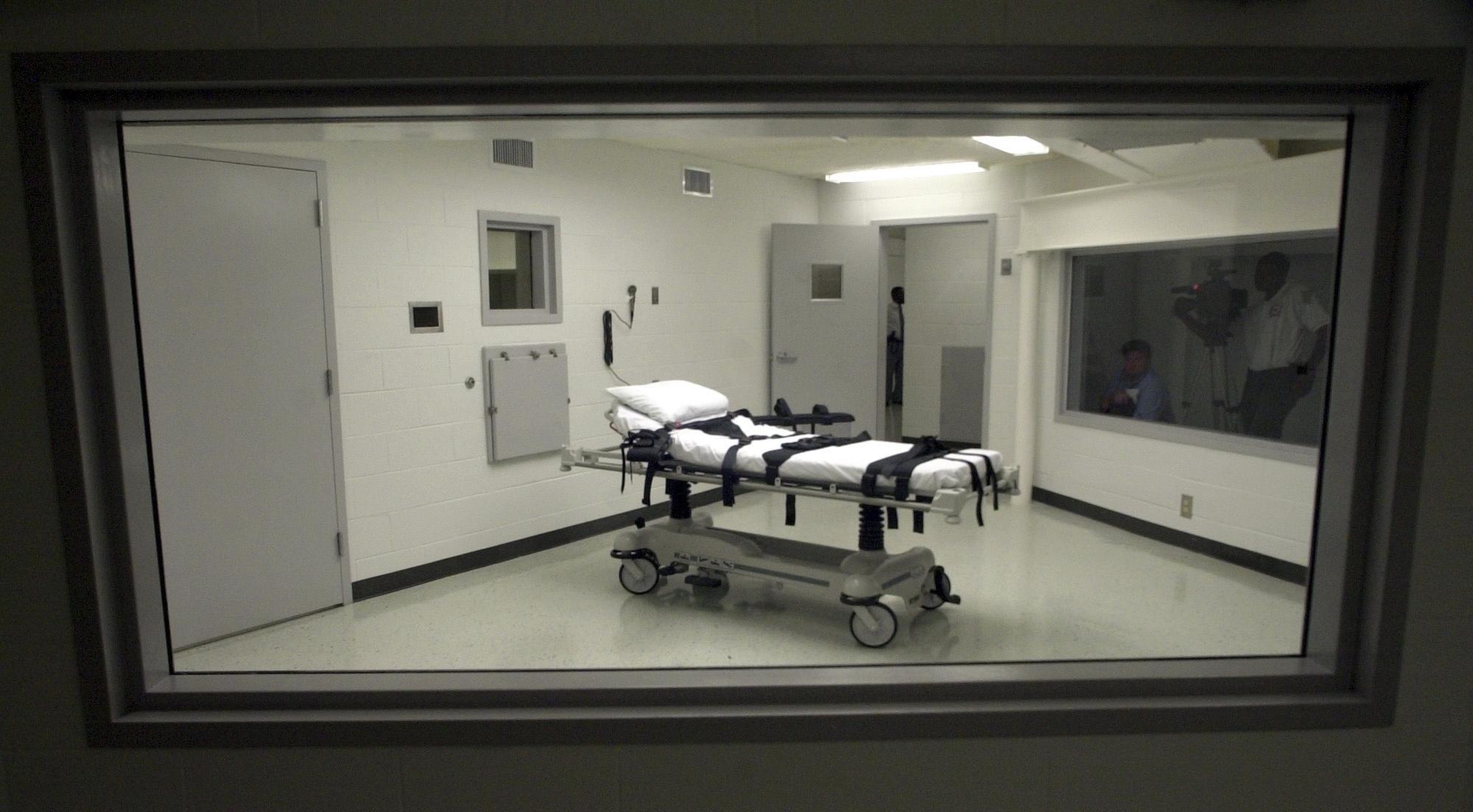It seems like the participation of doctors maybe would help. But doctors are in sort of a double-bind about participating in executions, right?
They are in a double-bind, in the sense that the age-old Hippocratic Oath tells them "do no harm." But at the same time, they know that without their participation, you have extremely under-qualified people trying to do this.
That is the double-bind. But the thing is, what we are asking when we ask a medical professional to help is? As one doctor explained — it's like asking a lifeguard to help someone drown better.
This is not what they went into the profession to do. It's so fundamentally at odds with the entire profession, which is the healing profession, the saving profession. It is not the killing profession.
Here in the South, we're beginning to execute people with nitrogen gas. You touch on this a little in your book, but do you think the same kinds of problems as with lethal injection could be in play?
Absolutely. What we see with nitrogen gas is like history repeating itself. Oklahoma was the first state to adopt nitrogen gas, even though Alabama is the first to actually use it. But Oklahoma adopted nitrogen gas based on a 14-page, double-spaced, unpublished report by three local college professors, none of whom had any scientific or medical background. And one of them later said, well, we couldn't get any medical professionals to help us, so we just did the best we could.
And so, we see the same rollout, as in there's no science behind this. We see the rollout in Department of Corrections directors [and] prison personnel coming out afterwards saying, "Oh, it was textbook. It was exactly what we expected. This went right," [when] it absolutely did not. We see the same thing there.
We even see the same with producers of natural gas, which make gas for fire extinguishers and children's balloons at parties. And they're also saying, "We don't want anything to do with this." So we see the supply-side problems already starting to emerge.
Lethal injection and the death penalty is a very serious subject, but one thing I appreciated about this book is that it is written in a very approachable style and it's even sometimes funny. What are you hoping that people take away from it?
I'm so happy that you appreciated that point, because it's a dark topic, I know that. And I do use levity in the writing to make it a little more readable and interesting.
I think it would be hard to walk away from reading this book and think that lethal injection is this basically humane execution method that just goes wrong from time to time for reasons we don't quite understand. No, that's not it at all. I think it would also be hard to walk away from reading this book and to think that states can be trusted to kill at all.
And then there's the question which I talk about in the epilogue of what do we do about the fact that so often by the time we get to an execution, this person is 17, 20 years away from their crime. The person who did that terrible thing — they're not there anymore. It's a frail old man being wheeled into the execution chamber in a wheelchair, or it's somebody who started a prison ministry.
Studying executions really gave me, and I hope will give readers, a sense of who these people are at the end. Not who they were in their worst moment, not whom they were at the crime or the trial. Who are these people that we're actually executing, and what effect does that have on the people that are asked to kill in the state's name?
Well, that was fascinating. Thanks so much for talking with me.
Oh, thanks so much for having me. It was a pleasure.





